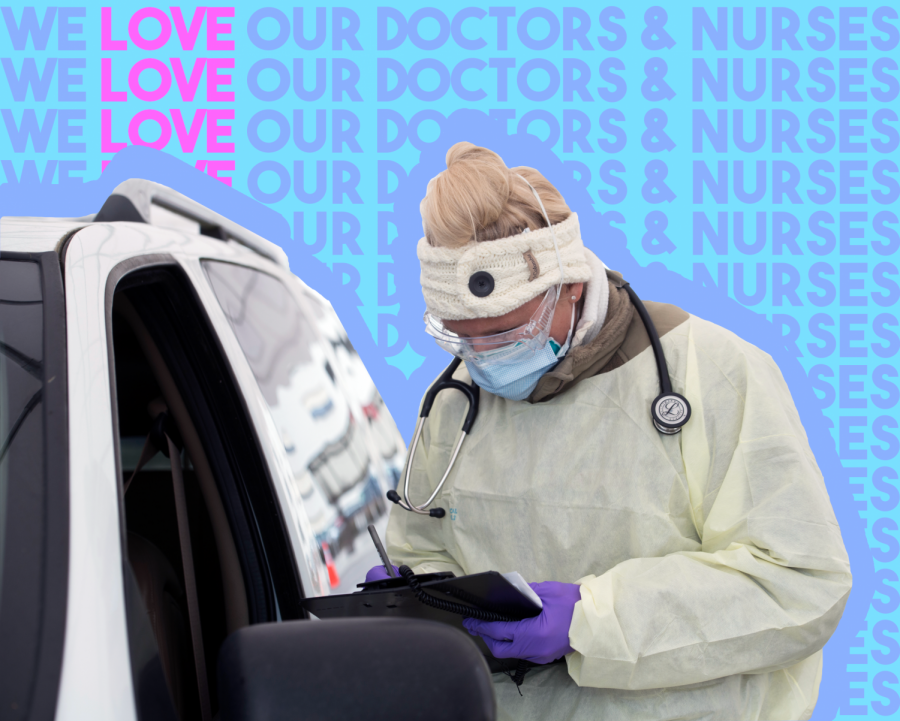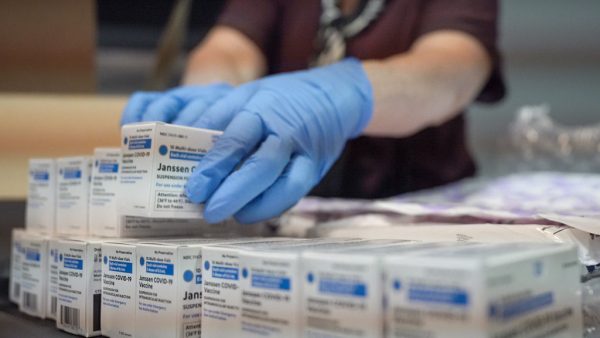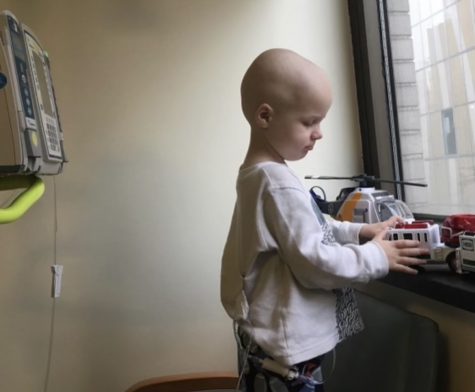SJS parents in healthcare fighting on front lines of COVID-19
Childbirth is a time celebrated by an entire family, where the expecting couple is usually surrounded by all their loved ones. Now, pregnant women in labor are allowed only one accompanying visitor in their hospital room. All other evaluations are conducted alone, in an effort to socially distance during the COVID-19 crisis.
The restrictions do not end there.
Social distancing recommendations prevent extended family from being available to support new moms with cooking, cleaning and caring for the baby, according to Wendi Monthy, an OB-GYN doctor at Legacy Community Health, a need-blind health center. Because most of her patients are uninsured and from communities who work essential jobs like agriculture and construction, Legacy Community Health has seen a sharp increase in the number of patients, especially now as many private doctors and other free clinics close their doors.
“The usual support system has disappeared,” said Monthy, mother of Meridian, a junior.
Houston hospitals are implementing strict measures to prevent the spread of COVID-19. For example, doctors at Legacy Community Health are issued masks and must also wear goggles and a gown when treating a sick patient. Constant hand washing is crucial; at Legacy Community Health, an alarm goes off every hour to remind doctors to disinfect their workspaces and wash their hands.
Many health systems have set up screening procedures to take temperatures and ask patients questions regarding symptoms and recent travel.
If a person tests positive for COVID-19, they are given a mask and sent to the “sick” area of a clinic for further evaluation and COVID-19 testing.
Although these precautions are necessary, they strain the communication and relationship between doctors and patients.
“I used to be the doctor that would hug her patients and carry my new babies around to show them off to the clinic,” Monthy said. “Now, I wear a mask so my patients can’t even see me smile at them.”
Elective medical visits and surgeries, such as surgeries planned in advance rather than in an emergency situation, have also been cancelled to prioritize resources. The postponement of elective medicine allows hospitals to prepare for an escalating number of COVID-19 cases and to restrict physical interaction.
Orthopedic surgeon and St. John’s parent David Randall (‘82) typically works to improve a patient’s “quality of life,” whether it be a sports injury or arthritis. Randall has seen a dramatic change in his work schedule.
“The days [used to] start early and end late,” Randall said. “Now, I only have two morning clinics a week and a few trauma cases per week.”
Randall still performs surgeries that he deems essential.
“The definition of essential surgery depends,” Randall said. “It’s a surgery that, if delayed, will lead to a worse outcome or cause a patient to suffer otherwise avoidable pain.”
As clinics admit fewer patients, hospitals are turning to technology to conduct virtual consultations. Doctors are using telemedicine platforms to communicate with and evaluate their patients through a screen in order to limit social interaction.
But technology has its limits.
“Telemedicine will serve as a good screening visit but, after that, doctors will need to physically examine the patient,” Randall said. “This pandemic will serve as a significant catalyst for the increase in the implementation of technology in the delivery of healthcare.”
For Monthy, a public health practitioner, the use of telemedicine presents unique challenges.
Monthy’s clinic has the added task of ensuring that patients are equipped with the appropriate technology and resources to engage in a telemedicine consultation. Typically, blood pressure (BP) cuffs or baby dopplers for personal use are covered by insurance, so many women can monitor themselves and their baby from the safety of their house.
“For our patients, this isn’t the case, so they must physically come in for many of their appointments,” Monthy said. “We are reaching out to various foundations and companies in hopes of getting donations of BP cuffs and dopplers for these women.”
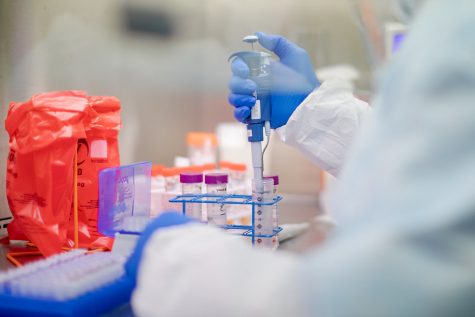
Due to their constant close proximity with patients, doctors must take rigorous measures to protect their families from the virus. Monthy covers her car seat with a garbage bag and wipes her shoes, computer, bags and steering wheel down with Clorox wipes when she arrives home. She uses an outdoor shower before entering her house and immediately puts her scrubs in the washing machine.
“Once I’ve ‘decontaminated’ myself, I can greet my family and cross my fingers that I’ve done enough to keep them safe,” Monthy said.
The rest of Monthy’s household has also tightened the reins to keep themselves, their loved ones and the rest of the Houston community safe.
“We try to limit any trips out of the house, whether that be to the supermarket or other places to make sure we are presenting the least risk to the public,” Meridian said. “In terms of my sister and I, we aren’t allowed to be near friends, even if we are keeping a six-foot distance for fear of spreading [the virus].”
For Meridian, the situation has been a stressful burden on her mental health, but she has found ways to be productive and take her mind off the virus.
“I have tried to keep busy by making podcasts, reading books and working for school,” Meridian said. “I have had the amazing opportunity to grow closer to my family.”
Meridian has drawn inspiration from how her mother has remained positive “in the face of so much fear and uncertainty,” and she strives to act similarly.
“I have always seen her as my role model and an amazing woman that takes charge when need be.” Meridian said. “The numbers of deaths she works with, the strategies she has to come up with to filter patients, it just proves how strong of a woman she is.”
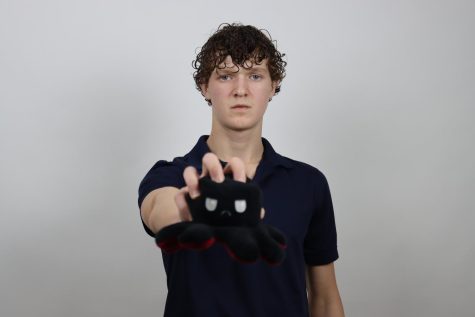
Cameron Ederle ('23) joined The Review in 2019 as a freshman. He likes to run, especially in the dark. He is a dog person, but his cat prefers to live...



